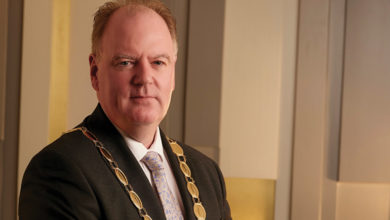Major challenges for prison reform
 Michael McKernan assesses the progress being made under the prison reform programme.
Michael McKernan assesses the progress being made under the prison reform programme.
In April 2014, Alliance Party leader David Ford will be able to celebrate four years as Northern Ireland’s Justice Minister.
From the very outset he said prison reform would be a top priority. As provided for in the Hillsborough Agreement of February 2010, he quickly established the prison review team (July 2010) under the chairmanship of Anne Owers – a former Chief Inspector of Prisons in England and Wales – to make a thorough assessment of the condition, management and oversight of Northern Ireland’s prisons.
In October 2011, the prison review team (see above) published a hard-hitting report containing 40 recommendations as to how prisons themselves and the performance of the Northern Ireland Prison Service (NIPS) could be improved.
Ford accepted all 40 of Owers’ recommendations and, as per recommendation 23, established a high-level oversight group, chaired by himself and including independent representatives, to oversee and report regularly to the Assembly Justice Committee, on the status of implementation. He had also launched the NIPS Strategic Efficiency and Effectiveness (SEE) programme in June 2011.
At the SEE launch, Ford said: “This signals an important milestone in the journey of reform … this programme will turn the solutions envisaged by Dame [Anne] Owers and her team into reality. The Prison Service will need new approaches; fresh values; a shift in balance away from the security focus of the past towards engagement with the offender; and it needs to be able to provide its staff with the skills, attitudes and abilities to carry out their job.”
Using less diplomatic language, the essence of the SEE initiative was to address the repeated criticisms of the Prison Service that it was over-manned and inefficient, had outdated attitudes, including an obsession with security, and did little to try to rehabilitate those in its custody.
Fast forward almost three years to the present and the obvious question arises: has the reform programme delivered the change envisaged?
The most recent report of the oversight group (March 2013) stated that only four of the forty recommendations had actually been implemented although it recognised progress in a lot of areas.
However, the Minister later claimed that by the end of 2013 about “half” of Owers’ recommendations had been implemented. He was able to point to the completion of reviews of the prisoner incentive scheme and the “re-categorisation” of women and young offenders. He was also able to highlight the provision of new physical facilities in the prison estate including progress on better provision for female prisoners.
The Minister had also announced several initiatives which would offer better support to prisoners while in prison and enhance their prospects of employment upon release. And new programmes for prisoners were being piloted such as a “cutting-edge” addiction programme in Maghaberry prison.
Most notably Ford reported that at end October 2013, 457 officers had left the service under the voluntary early retirement scheme with around 300 new staff recruited: a very significant transfusion.
Undoubtedly however, prison reform has been slower than first envisaged although in truth the external environment for a reforming Minister has not been favourable. Prisoner numbers have risen inexorably (up over 20 per cent since Ford took over) at a time when experienced staff were leaving in large numbers. And the murder of prison officer David Black at the hands of terrorists did not make it easier for Ford to push for a less security-focused culture or new models of working.
The Minister nonetheless claimed in late 2013 that prison reform was “still on track” but admitted that “great challenges remain” and that the Prison Service had not yet “transformed into the organisation envisaged by Dame Anne Owers and her team.”





